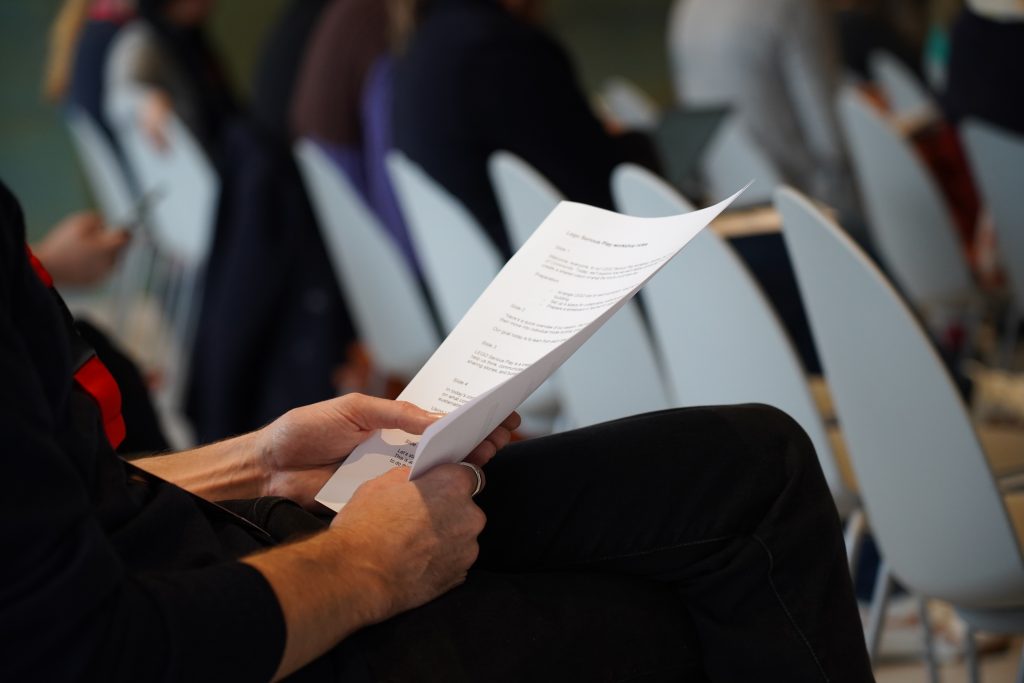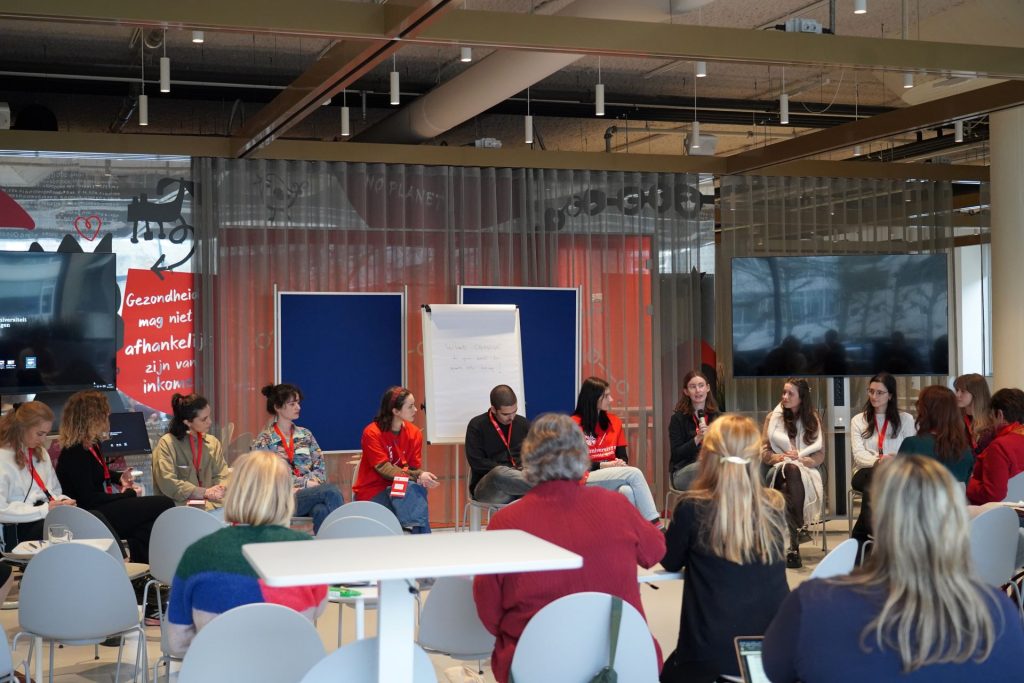The Power of Language: Insights from CLADES Congress
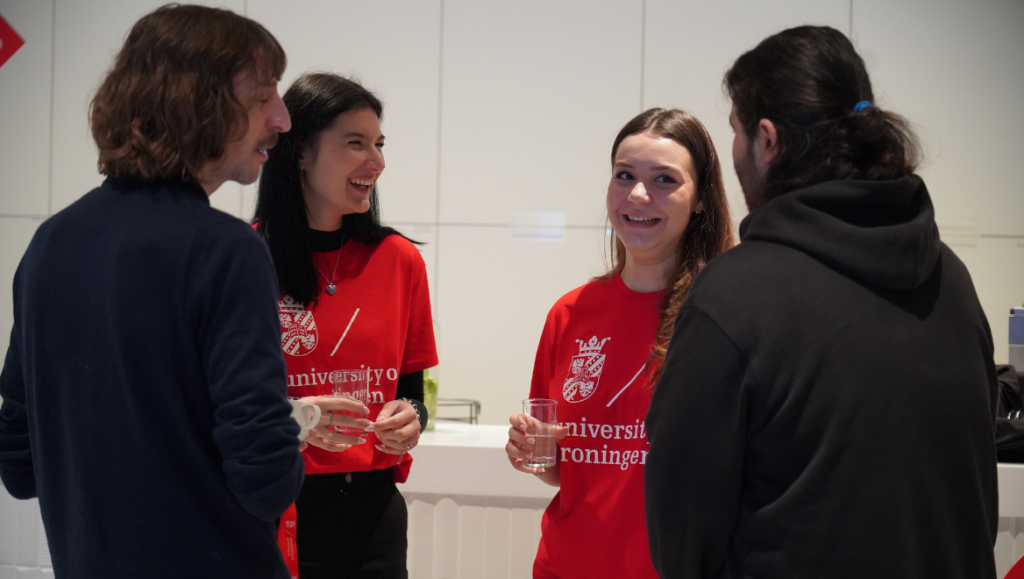
Two weeks ago, the Clades Congress 1 took place in Groningen, The Netherlands. Under the “Speaking for change, speaking about change,” more than 100 people gathered for two days to exchange ideas, knowledge, research, and experiences. We asked some participants: What were your key takeaways? Here are some of their reflections.
Discussing language and its impact is no easy task. For three reasons: first, it is not simple to understand that language is contextual and cultural; second, it is constantly evolving and transactional; and third, it shapes how we perceive and interpret the world. Language is omnipresent in our existence.
Understanding its power in a world of continuous change means recognising the need to analyse it deeply. More importantly, sharing this understanding with others is essential.
CLADES: A Platform for Change
Last year, Responsus was awarded an Erasmus+ grant for its project proposal CLADES (Critical Language Awareness, Democratic Engagement, and Sustainability). The project aims to increase civic engagement and sustainability literacy through Critical Language Awareness (CLA).
How can we increase the societal impact of language and raise critical language awareness in our communities? How can we empower individual voices and encourage ethical communication to foster meaningful social change? These were some of the key questions discussed during the event, organized on February 24 and 25 in collaboration with researchers and students from different countries, disciplines and interests.
The program featured inspiring keynotes, including Wakanyi Hoffman, Dorothy Thunder, and Randy Morin. It also included serious games, where participants explored the connection between language and sustainability; interactive workshops; interdisciplinary academic presentations; and, above all, plenty of coffee breaks where participants exchanged perspectives.
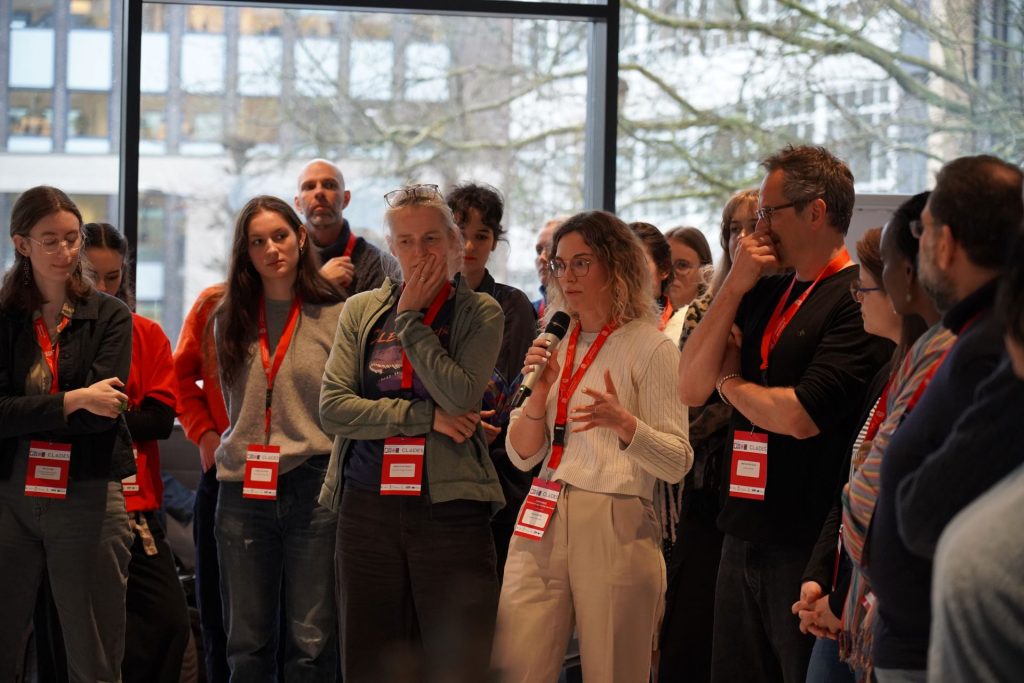
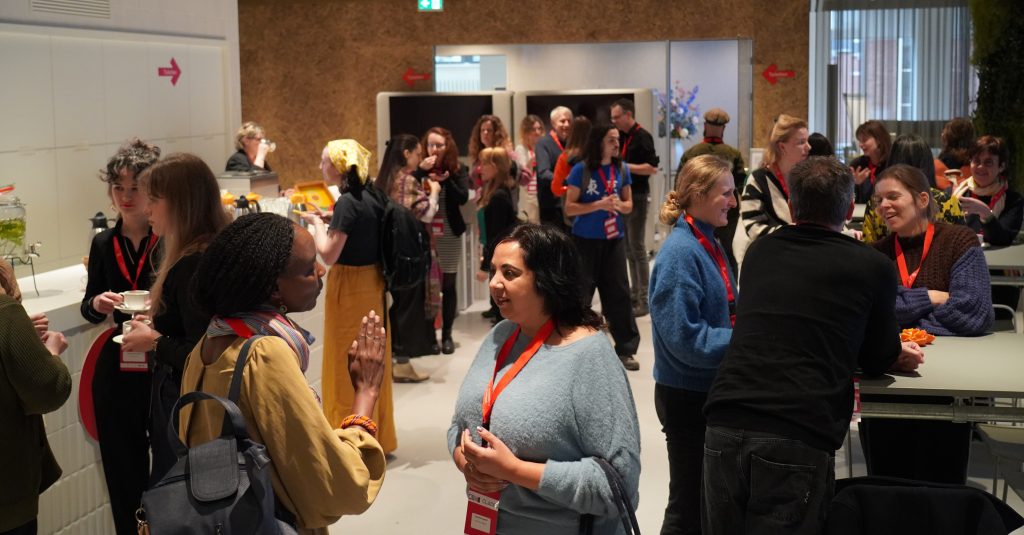
What Were Our Takeaways?
It’s not an easy question to answer. As organizers, we had several questions in mind throughout the event: how can we increase the societal impact of language? How can we raise critical language awareness in our communities? How can we promote ethical communication and amplify individual voices?
Some of the most thought-provoking contributions came from our keynote speakers, who encouraged us to move between local and global perspectives. They shared their empirical experiences working with African Indigenous knowledge and indigenous languages in Canada.
Wakanyi Hoffman challenged us to rethink our narratives of sustainability by reconsidering how we define “being human.” She shared her research on AI’s role in storytelling and how the way we tell stories shapes the reality we create. She left us with a question that is still in our mind: What stories are machines telling about us, humans?
Randy Morin and Dorothy Thunder, visiting from Canada, spoke about the preservation of minority languages and the empirical methodologies they use in the field. They emphasized the importance of “immersion, engagement, and deep involvement” highlighting how being present in a place is one of the most effective ways to inspire future generations to keep their languages and therefore, its culture and traditions alive.
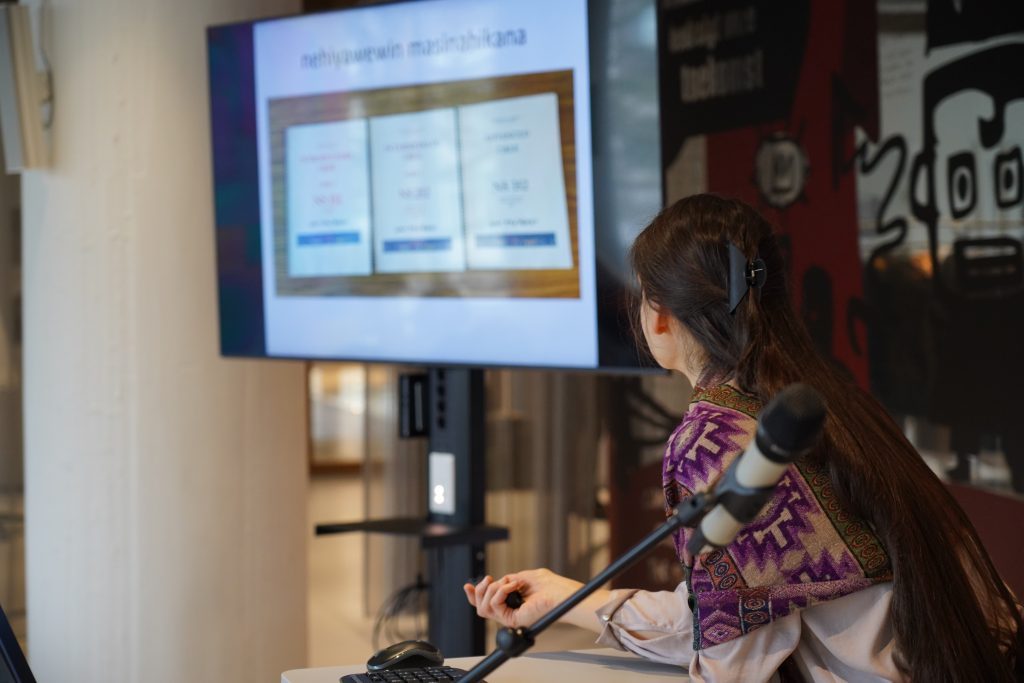
Reflections from Participants
The Clades Congress 1 left participants with many insights. Some reflected on the importance of language in shaping knowledge and the need for interdisciplinary approaches. Others highlighted the power of connectedness -to oneself, to others, and to nature- as a key driver for meaningful change.
“It was a very inspiring congress with many exciting formats, new impulses, and different perspectives. My takeaways were manifold, from insights into indigenous insights and their value in academia to serious games and new teaching methods to academic input at the intersection of sustainability and critical language awareness.”
—Marie-Louise Brunner, Tandem-Professor, Trier University of Applied Sciences, Environmental Campus Birkenfeld & Europäische Akademie Otzenhausen
“This conference was more than just an event—it was an experience. Unlike traditional gatherings, it offered off-the-beaten-track workshops and perspectives that highlighted the profound importance of connectedness—with oneself, with others, and with nature. This, to me, is the true catalyst for meaningful change. If we are to move beyond merely speaking of change to actually creating it, this sense of connection must be at the heart of our efforts. I’m deeply grateful to have been part of this inspiring journey and for having met some many interesting people.”
—Bernard De Clerck, Department of Translation, Interpreting and Communication, Ghent University.
“The sessions and tasks that I was able to attend were really transformational and validating for me. The topics of the conference were things that I think about personally a LOT, and which I try to bring into my work as a learning designer, trainer of instructors and coach. Sometimes I feel like I am a bit out of place, because not all of my colleagues are as excited or passionate about language, storytelling, humanization, and community as I am, and this leaves me feeling a bit lonely. At the CLADES conference, I was with people who thought about the same things as me, and that felt really empowering.”
—Tracy Poelzer, Educational Specialist/Trainer, Educational Support & Innovation, University of Groningen
“The CLADES congress brought together people from so many backgrounds and disciplines, all unified in acknowledging language as supremely important in creating worlds. In the walking debate, participants were able to convince and be convinced; the arguments shaped and reshaped the positions of those involved, and the room became a dynamic hive of sense-making. In a way, this exemplified the conference: nothing was static, everyone was open to new ideas, and everyone’s voice counted.”
—Matt Drury, Lecturer and PhD Candidate in Ecolinguistics, University of Groningen
If you took part in Clades Congress 1, attended the workshops and serious games, and would like to share your thoughts, key takeaways, or feedback for future events, please email us at EUclades@rug.nl.
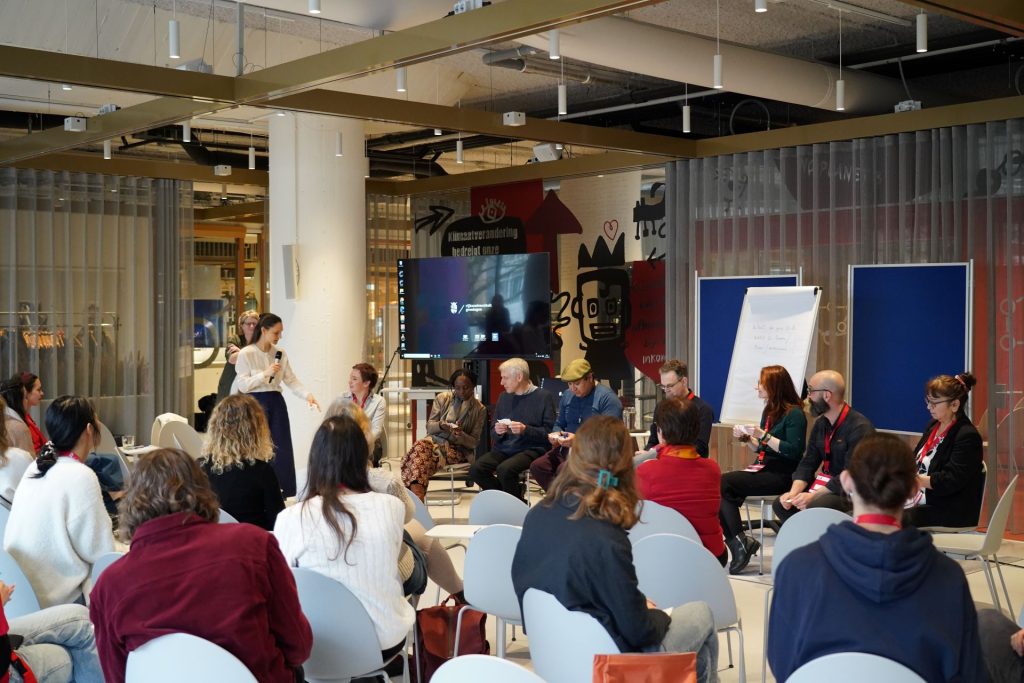
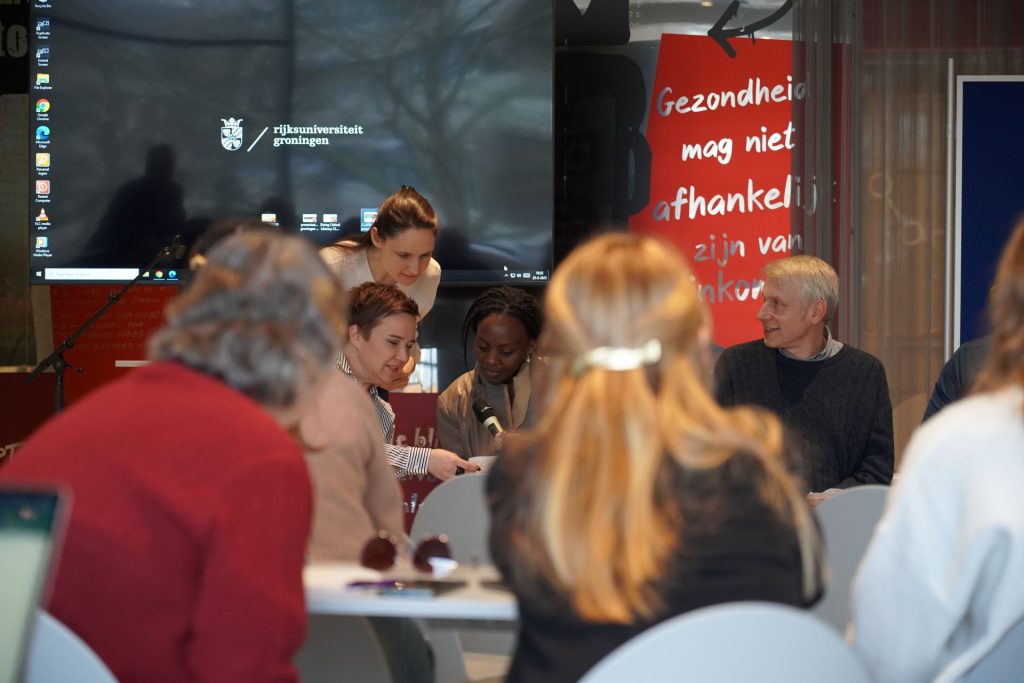
Next Chapter: what comes next?
The road ahead is not easy either. We will continue working to strengthen the impact of critical language awareness, prepare new material for training, and ensure that the conversations from CLADES Congress 1 translate into real-world change.
In the meantime, we invite you to explore the Book of Abstracts for fresh ideas and insights, and to relive the experience through the Congress 1 Gallery (soon).
Stay tuned for upcoming initiatives, research, and future editions of the CLADES Congress 2, which will be in the beautiful city of Ghent.
